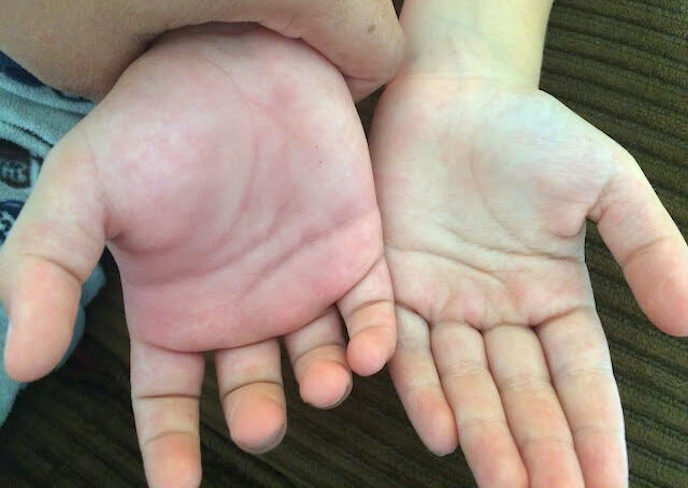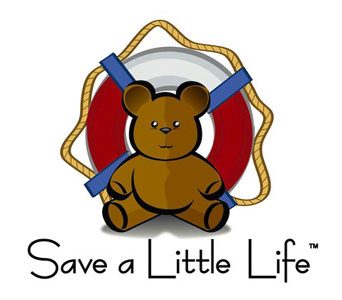Most of us will likely be stung by a bee or yellow Jacket at some point in our lives. What should you expect if this happens to your little one?
As you might expect, there will be some pain or discomfort at the site and it is usually accompanied by local swelling, a feeling of heat and itching around the location. On occasion, the swelling might move from one hand to the forearm. This is not that uncommon. Itching may continue for several days and can be alleviated by a cool compress to the area.

How do I remove the stinger?
The stinger itself is a hollow tube through which venom enters the body. The preferred method for removal is to use something firm like a credit card to sweep the stinger off from the side. Grabbing the stinger with tweezers or your fingernail will likely eject additional venom into the person.
What does a severe reaction look like?
The following reaction(s) to a bee sting that require immediate attention include:
- Hives, in parts or larger sections of the body
- Nausea/vomiting
- Stomach cramps
- Any swelling of the body not associated with the site…particularly in the neck, face, tongue that might affect breathing

Some reactions are not specific to the site itself. If there is some swelling elsewhere, consider using an anti-histamine such as Benadryl. The liquid version enters the body more quickly, plus many young ones cannot swallow a pill.
Continue to observe the person closely and if needed, go to a local emergency department.
What to do when the bite victim has a known, severe allergic history to bee stings
If the bite victim has a known, severe allergic history to bee stings you should expect severe symptoms within minutes. If an EpiPen is available, use it as directed, then call 9-1-1. Driving to a hospital under these circumstances has risks, including traffic accidents.

What is an EpiPen?
EpiPen is a commonly known brand name of an auto-injectable device that delivers the drug epinephrine, a life-saving medication used when someone is experiencing a severe allergic reaction, known as anaphylaxis.
Do I need an EpiPen at home, even if no one in the household has a known allergy?
Most pediatricians will not prescribe one unless there is a confirmed history of a severe reaction to any substance that could cause a life-threatening event.
